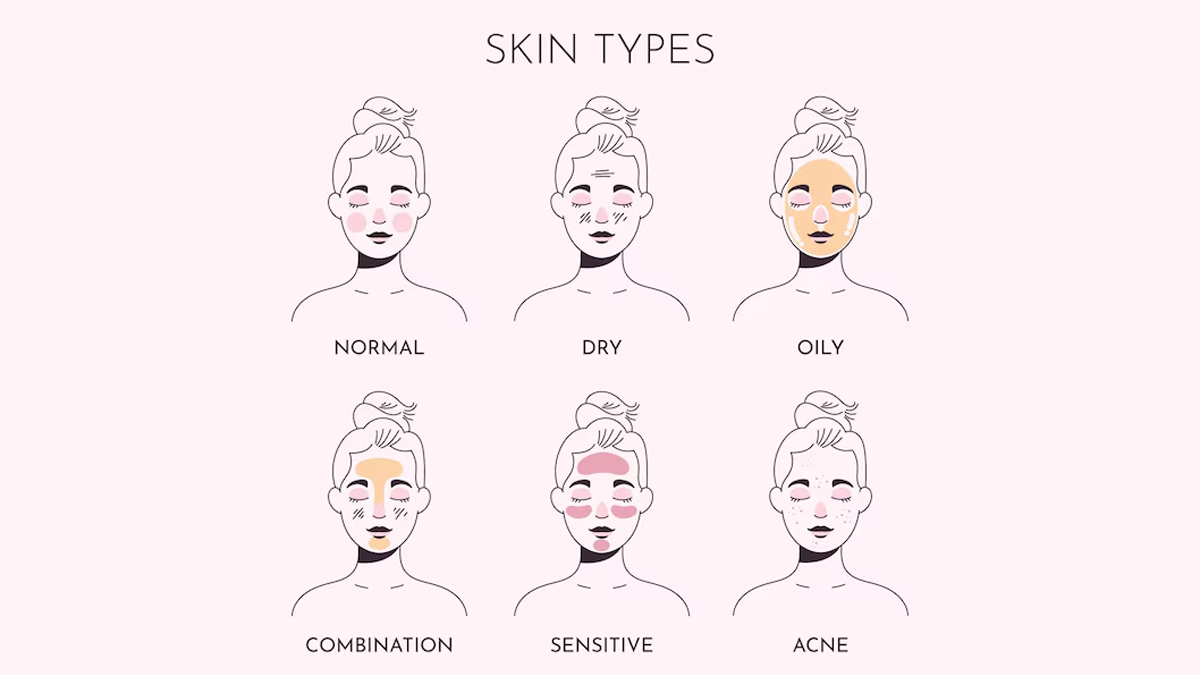
Unless you are a skincare enthusiast, you’re likely to blank out if anyone ever asks you about the skin type you have. This isn’t just about an interest in beauty; rather, it’s about understanding and caring for your skin. Issues like acne, blemishes, and pigmentation can often be managed with the right knowledge of your skin type and its needs.
Table of Content:-
Speaking with the OnlyMyHealth team, Dr Bharti Patel, MD - Dermatologist, Consult on Practo, Mumbai, explains the importance of understanding your skin type and how you can find it out.
What Are The Common Skin Types?

There are five main skin types, each with unique characteristics:
Normal skin: Balanced in moisture and oil production, with a smooth texture and minimal imperfections.
Oily skin: Produces excess sebum, leading to shine, enlarged pores, and a tendency for acne and blackheads.
Dry skin: Lacks moisture, often feeling tight, rough, or flaky, and may be prone to irritation and fine lines.
Combination skin: Features both oily and dry areas, typically with an oily T-zone (forehead, nose, and chin) and drier cheeks.
Sensitive skin: Reacts easily to products and environmental factors, often experiencing redness, itching, or irritation.
How To Know What Skin Type You Have?

According to Dr Patel, skin types can be determined by using blotting paper. Blotting paper, also known as bibulous paper, is a highly absorbent paper that can be used to dry ink, oil, or other liquids. When it comes to testing your skin, blotting paper can remove excess oil and sweat from it.
To use blotting paper, Dr Patel shares, "Place the blotting paper on four different areas of the face—forehead, chin, nose, and cheeks—and leave it for 10 minutes in the morning before washing the face. If the paper gets soaked with oil in certain areas, it indicates that the skin in those areas is oily."
You can also visit a nearby dermatologist for a professional skin type assessment. Dermatologists use advanced tools such as a Wood’s lamp, high-resolution cameras, or a skin scope to analyse the skin and accurately determine its type.
Also Read: From Boosting Immunity To Promoting Skin Health: Here Are 6 Benefits Of Patharchatta You Should Know
Can Skin Type Change Over The Years?
The short answer is yes! According to Dr Patel, your skin type can change over time due to various factors, including:
- Hormonal factors
- Diet
- Environment
- Internal disorders
- Application of cosmetic products
Other reasons why your skin type changes include:
- During teenage years, hormonal changes often lead to oily skin.
- Exposure to cold and dry weather can make the skin dry.
- Ultraviolet (UV) radiation and blue light from mobile and laptop screens can make the skin sensitive, red, and reactive.
- Using the wrong cosmetic products or makeup can make the skin oily, dry, or sensitive.
- Internal diseases like thyroid disorders, menopause, and diabetes can cause skin dryness.
- Kidney and liver diseases can lead to skin discolouration and rashes.
Mistakes People Make While Choosing Products According To Their Skin Type

One of the reasons why people should be aware of their skin type is because it helps select the right skincare products, as not all products are suitable for every skin type.
Dr Patel says that people with oily skin should avoid oil-based products, including oil-based foundations and concealers, as they can clog pores and cause acne. Instead, they should use water- or gel-based lotions.
On the other hand, people with dry skin should use cream-based or oil-based products to provide adequate hydration.
Additionally, those with sensitive skin should avoid strong perfumes and chemical-based products to prevent irritation.
Takeaway
Everything applied to the skin, whether on the face or body, gets absorbed into circulation. It is therefore important that the products that are used are safe and effective and also suitable for your skin type. It is best to consult a dermatologist or skincare expert, as they can accurately determine your skin type and recommend products that suit your skin without causing harm.
Also watch this video
How we keep this article up to date:
We work with experts and keep a close eye on the latest in health and wellness. Whenever there is a new research or helpful information, we update our articles with accurate and useful advice.
Current Version